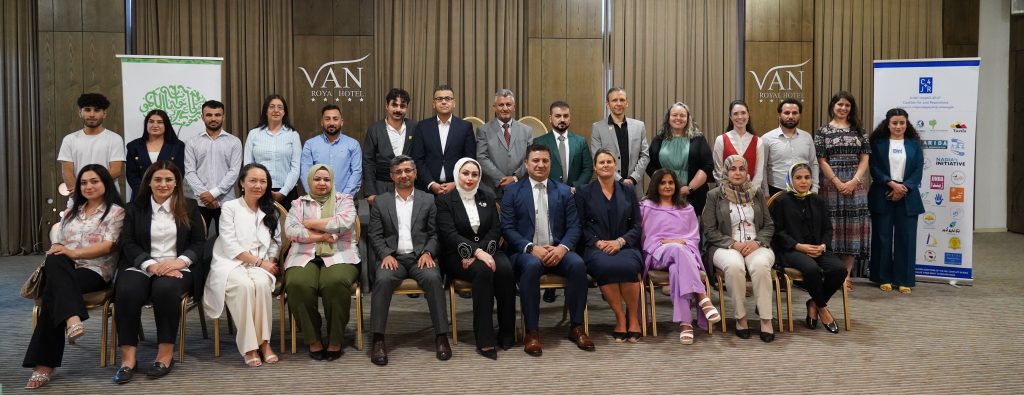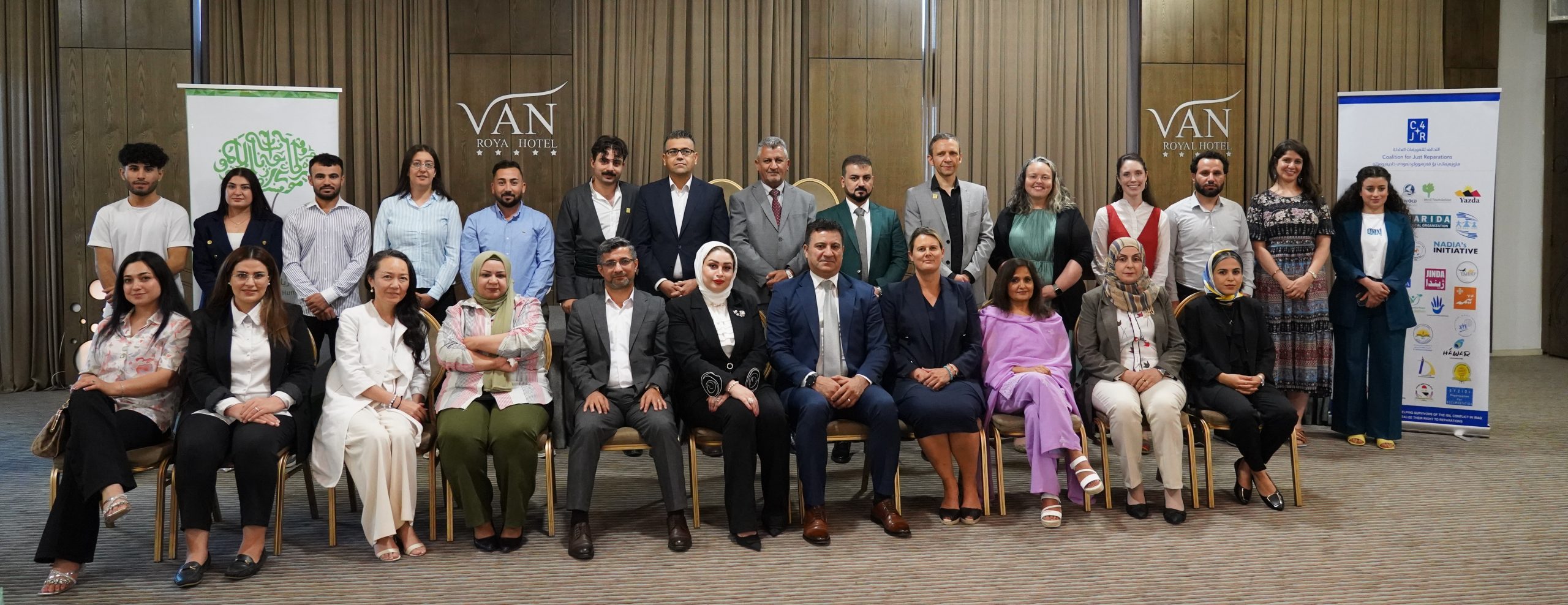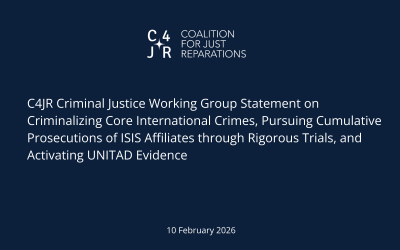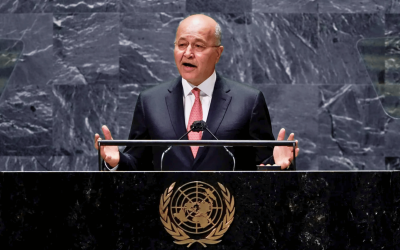ERBIL, Kurdistan Region of Iraq — On Wednesday, 12 June, 2024, the Coalition for Just Reparations (C4JR) held an event in Erbil to mark the launch of a new guide for using human rights indicators to monitor the implementation and realisation of the right to rehabilitation for survivors of ISIL crimes in Iraq, as guaranteed under the Yazidi Survivors Law (YSL). This latest report, “Right to Rehabilitation as Reparation for Survivors of Grave Human Rights Violations,” was produced by C4JR, the Jiyan Foundation for Human Rights, and the International Centre for Health and Human Rights (ICHHR), and the event provided a much-needed opportunity to discuss this work.
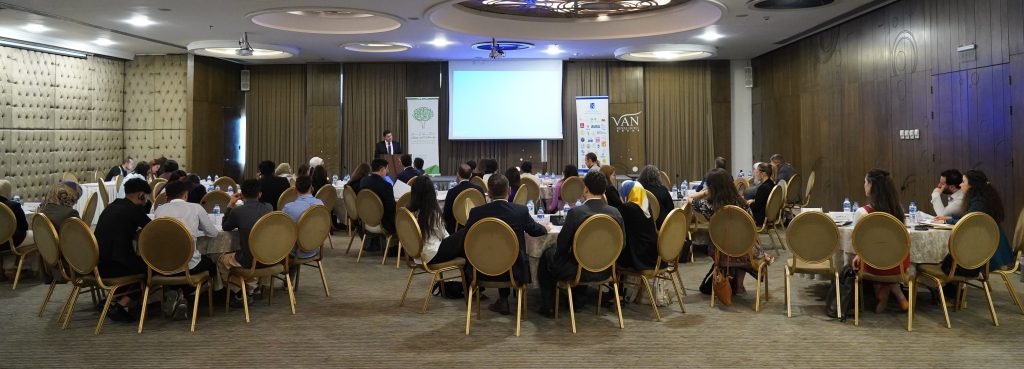
Download in English: https://tinyurl.com/wjnfytcx Download in Arabic: https://tinyurl.com/mryu5x8c
Opening Remarks
Opening remarks from a series of impressive speakers set a hopeful and ambitious tone. Dr. Yousif Salih, Director of Clinical Services at Jiyan Foundation, emphasised the significance of rehabilitation services. Dr. Dindar Zebari, KRG Coordinator for International Advocacy, and Ms. Alyaa Ahmed Abdulamer, Director of the Women’s Rights Department at the Ministry of Health of Iraq, both spoke about the importance of governmental support. Ms. Sherri Kraham Talabany, President of SEED Foundation, and Ms. Yoko Fujimura, Head of Erbil Office, IOM Iraq, also shared their insights.

Keynote Address
The United Nations Special Rapporteur on Torture and Other Cruel, Inhuman or Degrading Treatment or Punishment, Dr. Alice Jill Edwards, who was in Iraq to speak with survivors about her upcoming report and receive on-the-ground feedback delivered a keynote on “Repairing the Irreparable: Remedies, Rehabilitation, and Reparations for Survivors, Families, and Communities Impacted by Sexual Torture in Armed Conflict.” Dr. Edwards praised the collaborative efforts in Iraq and stressed the importance of international benchmarks for monitoring rehabilitation efforts.
“For the whole of society to be able to heal, there must be acknowledgment of the full range of harms committed, so that everyone who chooses to seek help is respected, acknowledged and treated,” Dr. Edwards told the audience.
Download the full keynote here: https://c4jr.org/wp-content/uploads/2024/06/C4JR_Keynote_Rehabilitation_Erbil-Iraq-June-2024.docx.
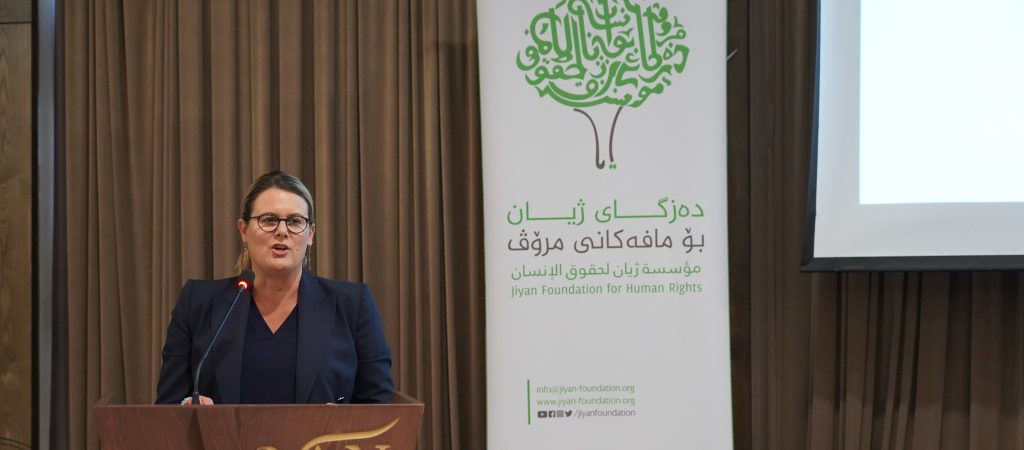
Panel Discussions and Presentations
The event featured a series of impactful presentations. Ms. Layla Hassan, a Shabak survivor and C4JR Survivors Council Member, discussed the challenges in accessing rehabilitation services.
Dr. Bojan Gavrilovic, Head of Program for Rights and Justice at Jiyan Foundation/C4JR, introduced the adaptation of human rights indicators to the Iraqi context.
Professor Nimisha Patel elaborated on the Human Rights Indicators Framework for rehabilitation as reparation.
Ms. Rand Al-Ajeel from IOM Iraq highlighted the Mental Health and Psychosocial Support (MHPSS) referral system established under the YSL, emphasising the collaboration between NGOs and state services.
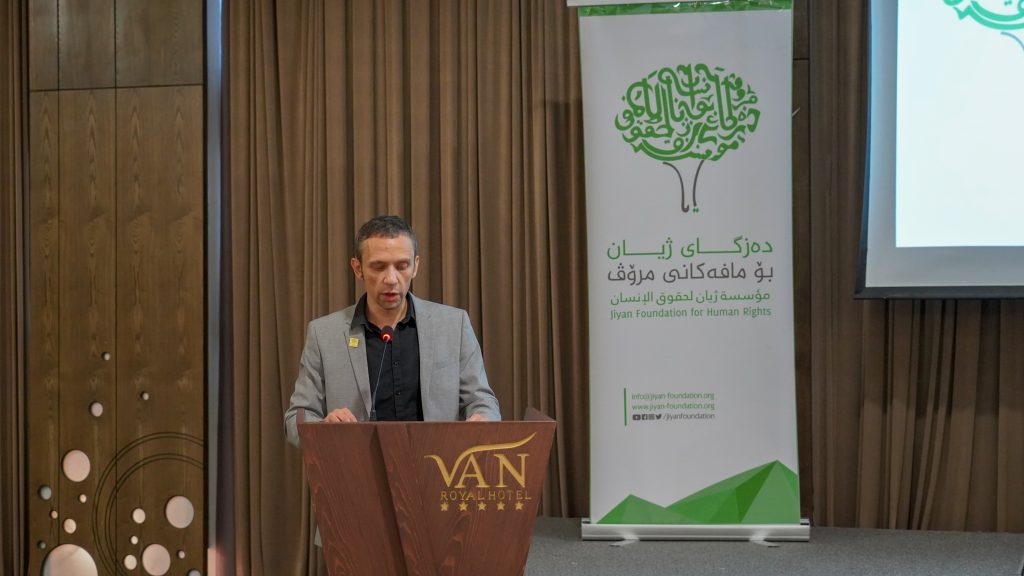
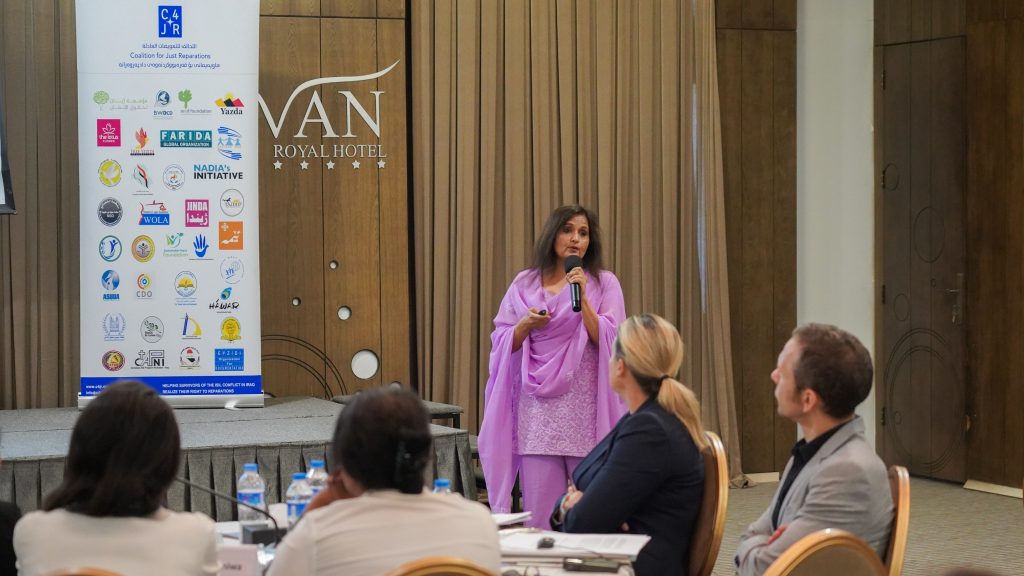
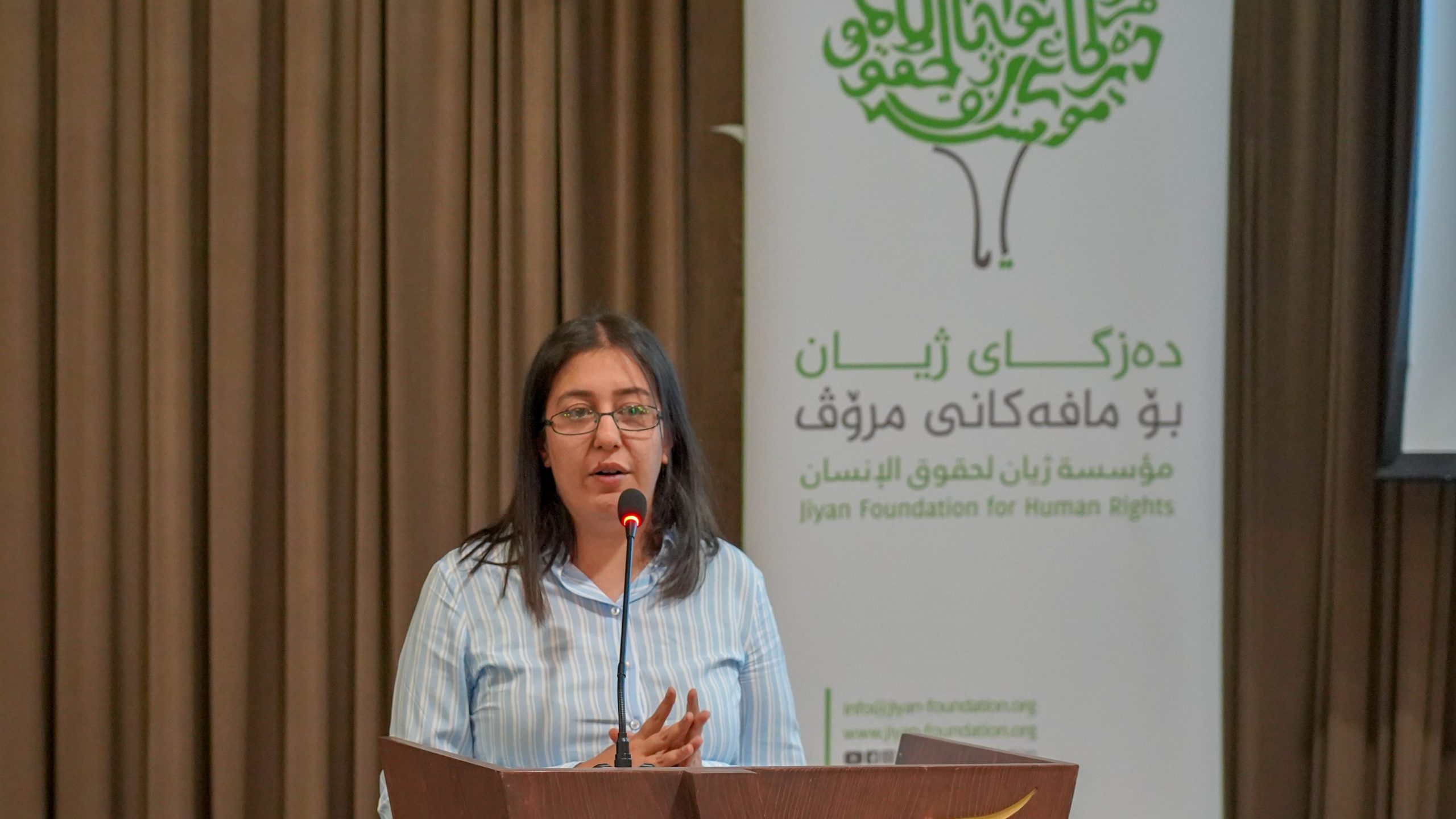
Panel: Ensuring Effective Rehabilitation
Moderated by Professor Patel, the panel included distinguished participants such as Ms. Alyaa Ahmed Abdulamer, from the Ministry of Health, Dr. Nawazad Sami from the Survivors’ Centre at the Duhok Department of Health, Ms. Shireen Khairo, a prominent Yazidi activist, Ms. Asmaa Ibrahim from the Jiyan Foundation, Ms. Al-Ajeel from IOM, and SRT Dr. Edwards. Speakers discussed key priorities, challenges, and steps needed to ensure effective rehabilitation for survivors. Alyaa told the audience that, in coordination with MOLSA, the Ministry of Health plans to open two Rehablitation and Health Care Centers in Sinjar and Shiekhan. The Ministry will provide both centers with necessary staff, and send those who require complex surgery that is not available in Iraq, outside of the country for treatment, she added.
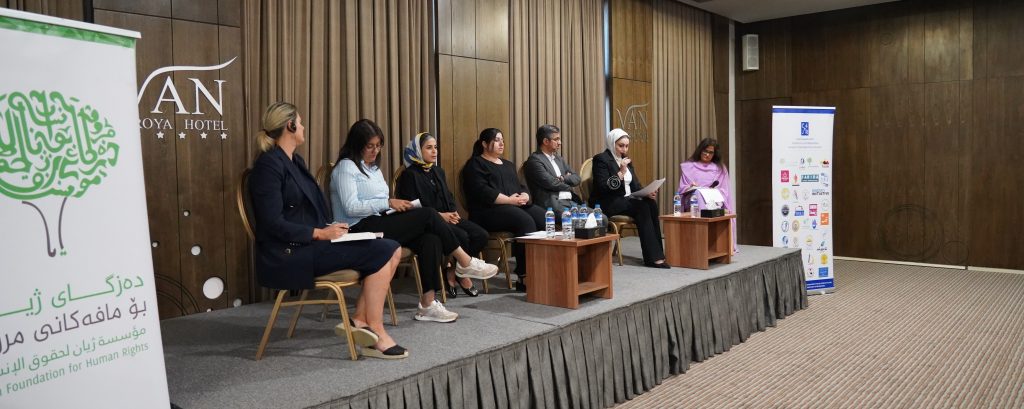
Q&A and Closing Remarks
A lively Q&A session followed, allowing participants to engage directly with the speakers. The event concluded with Ms. Yusra Al-Kailani from the Center for Victims of Torture (CVT) summarising the discussions and mapping the way forward. She emphasised the necessity of using human rights indicators to ensure timely and quality rehabilitation services.
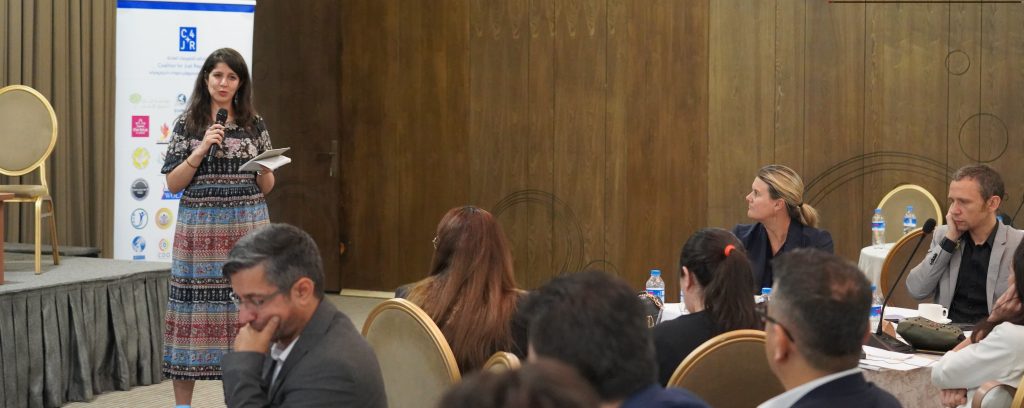
Conclusion
The launch event was a significant step towards implementing the YSL effectively. The collaborative efforts and shared insights underscored the commitment to providing comprehensive rehabilitation for survivors of ISIL crimes. The session concluded with lunch, offering attendees an opportunity to network and discuss the day’s proceedings informally.
This event not only marked the launch of a crucial guide but also reinforced the collective resolve to uphold the rights of survivors and ensure their access to necessary rehabilitation services. Many thanks to all who participated in the event – and in this work. Special thanks are extended to Pershang Omar, a psychotherapist and focal point of C4JR’s Rehabilitation Working Group, for her role in moderating the event from beginning to end.
Key Components of the Guide
– Human Rights Indicators: The guide introduces a set of human rights indicators developed by ICHHR and tailored for the Iraqi context in collaboration with the Jiyan Foundation. These indicators serve as benchmarks for assessing compliance with international standards on rehabilitation and monitoring the effective implementation of the YSL.
– Methodology: The adaptation of these indicators involved extensive stakeholder consultations conducted between June and December 2023. These consultations included survivors, Iraqi NGOs, and international experts, ensuring that the indicators are both contextually relevant and practically applicable.
– Practical Steps for Implementation: The guide provides a step-by-step approach to using these indicators, including:
– Establishing a monitoring team with relevant expertise.
– Designing and implementing a data collection and recording system.
– Analysing and interpreting the collected data to produce actionable reports.
– Using these reports to inform advocacy and drive state efforts towards fulfilling rehabilitation obligations.
– Stakeholder Involvement: Another significant aspect of the guide is its emphasis on involving survivors in the monitoring process. By incorporating their experiences and feedback, the guide ensures that rehabilitation services are aligned with the actual needs and preferences of survivors.
Expected Outcomes of the Guide’s Implementation
– Enhanced Accountability: By using standardised indicators, it is our hope that stakeholders can hold the Iraqi government accountable for its obligations under YSL.
– Improved Rehabilitation Services: The guide’s structured approach aims to identify gaps and areas needing improvement, thereby enhancing the quality and accessibility of rehabilitation services for survivors.
– Informed Advocacy: Data-driven reports generated using the guide will provide a solid foundation for advocacy efforts, helping to direct resources and attention to the most pressing needs.
– Survivor-Centered Approach: Ensuring that the voices of survivors are central to the monitoring process will lead to more responsive and effective rehabilitation programs.
Special thanks are extended to Prshang Omar, a psychotherapist and focal point of C4JR’s Rehabilitation Working Group, for her role in moderating the event from beginning to end.
